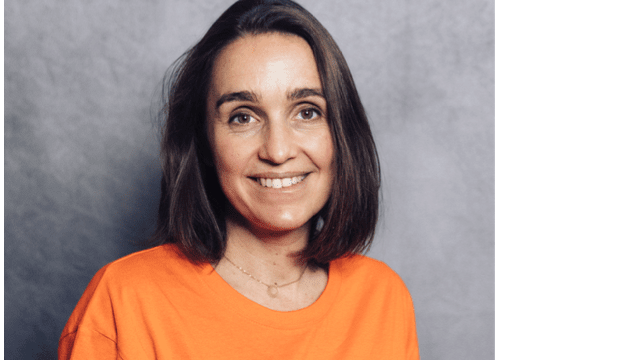"One month, one Engaged Alumna, Lucie de Clerck (E08): 'Establishing genuine strategic partnerships between the corporate world and the realm of social impact.'"
05.02.2024
ESSEC graduate in 2008, Lucie de Clerck began her career in a consulting firm specializing in Energy and Defense. She quickly transitioned into social entrepreneurship by joining Anne Roos-Weil (E07) to develop Djantoli, a project providing micro-health insurance to combat infant mortality in West Africa. Then in 2016, she joined the emerging social tech startup Entourage, which she led until the end of 2023, driving the association's growth to 60 employees, 9 branches, and a budget of 4 million euros. Lucie remains a co-founder and board member of Entourage today and is also involved in other associations, endowment funds, and impact funds.
ESB: What is your background and what made you interested in CSR?
L.d.C: I've had my entire career in the nonprofit sector, so I encountered CSR more as an "outsider." At Entourage, we aim to combat social exclusion by making society more inclusive with people who have experienced hardship. Quickly, we sought to engage businesses in this effort, by seeking financial support and raising awareness among their employees, but most importantly, by encouraging them to integrate individuals experiencing precarity within their teams. This is the essence of our LinkedOut project: convincing companies to give a chance to profiles that wouldn't typically pass traditional hiring processes, yet have much to offer.
ESB: How does CSR manifest in your life?
L.d.C: Today, >200 companies have partnered with us, with some remarkable stories. I think particularly of the company cyber Advens. When we first met them, they weren't engaged yet, but there was a strong desire from the CEO. Over the years, they've transformed incredibly: employee engagement, financial and skills-based sponsorship, hiring LinkedOut candidates, ... to the extent that they've made sharing central to their model, as now 50% of the financial value generated goes into a foundation to finance ecological and social transition. Among the incredible things they've done to engage, they offered us their IMOCA boat to raise awareness for our association and spread our message. With their teams and our beneficiaries, we've experienced some legendary moments on the docks. We did it again the following year with the company Randstad, who sponsored the RedStar jersey to boost our actions. CSR can be a lot of fun!
ESB: How do you define CSR?
L.d.C: CSR is simply about putting things in the right place. For years, we've believed that a business's purpose is to "make a profit." But a business is, first and foremost, an actor whose role is to enable society to function well. It's embedded in the world's challenges, for which it shares responsibility, as we all do. I hope that this paradigm shift will continue in the next decade. Those companies will fully engage in ecological and social transition. Not just peripherally by limiting their negative externalities, but by setting ambitious goals for positive contributions on these issues.
ESB: How is it a business catalyst and what type of ROI does it bring?
L.d.C: The positive outcomes are numerous, as we see very concretely among our partner companies. Taking the example of Advens, which is very sensitive to the "war for talent," their employee turnover has decreased significantly since they engaged. The effects of inclusive recruitment are very powerful. I think of Mano Mano, which has hired several LinkedOut candidates, which has had a strong effect on the cohesion of the teams involved and their "opening of chakras." A chaotic world will have enormous business repercussions if we think about it in the long term. It's a matter of survival for them to contribute to the common good.
ESB: What would you like to say to ESSEC Alumni Club and others?
L.d.C: To turn to associations with real expertise in addressing these challenges. Companies cannot act alone, or they risk doing it poorly and struggling to escape their own perspective. For me, there are real strategic alliances to be forged between the corporate world and the world of impact.

Comments0
Please log in to see or add a comment
Suggested Articles




